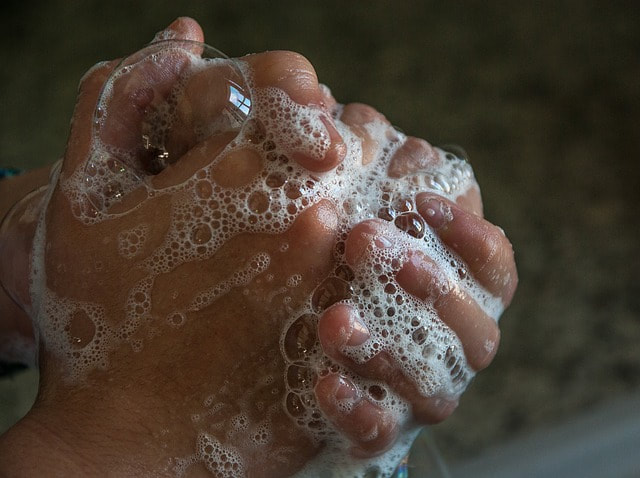Types of Eye InfectionsThere are a few different types of eye infections. Certain types of infections are more common than others. For example, fungal and parasite eye infections are less common than viral eye infections. It’s essential to have a doctor diagnose the type of infection you have, since treatment may vary. Types of eye infections include: Conjunctivitis Conjunctivitis is a common eye infection that involves inflammation of the tissue that lines the eye. Bacteria, allergies, and irritants, such as contact lenses, can all cause conjunctivitis. One of the most common causes of conjunctivitis is a virus. According to the National Eye Institute, viral conjunctivitis often accompanies an upper respiratory tract infection, such as a cold, which is why it is common during the winter. Conjunctivitis is very contagious and is easily transmitted by touching something someone infected touched. People often spend more time indoors during the winter months, which also creates more opportunities to have close contact and spread the virus. Blepharitis Blepharitis is an infection that involves inflammation of the eyelid. It can occur due to a skin condition or bacteria. Blepharitis often affects both eyes. Stye A stye is a localized infection, which usually occurs due to bacteria getting into the oil gland opening or the hair follicle of the eyelashes. It causes a tender bump along the lash line. According to the Mayo Clinic, one of the most common causes of a stye is staphylococcal bacteria. This type of bacteria is often found in the nose and can easily be transmitted to the eyes. Eye Infection SymptomsSymptoms of an eye infection may vary depending on the type. Common symptoms include:
While certain types of eye infections, such as conjunctivitis, don’t usually cause vision problems, more serious eye infections, such as fungal eye infections, may lead to complications. Some types of eye infections have the potential to penetrate the interior portions of the eye and may threaten sight. That is why seeing an eye doctor is so important if you have an eye infection. Treating Eye Infections Treatment depends on the type of eye infection and the cause. Certain types of eye infections may not require any special treatment and may resolve on their own. In other cases, such as with a stye, home treatment including placing a warm compress over the eye may help relieve discomfort. Depending on the severity of the infection, steroid eye drops may be prescribed to decrease inflammation. If the infection is a severe viral infection, antiviral eye drops may be recommended. Antibiotic eye drops may also be prescribed to treat symptoms of a bacterial eye infection. Preventing Eye InfectionsEye infections can be painful and possibly lead to complications. The good news is that there are several steps you can take to prevent an eye infection from developing.
One of the most important ways you can prevent eye infection is washing your hands frequently. The first week in December is National Handwashing Awareness Week, which is a great reminder to practice good hand hygiene. Although it may seem simple, not everyone washes their hands as well as they should. You should wash your hands with soap and water, creating a good lather, for about 20 seconds. Be sure to get under your nails and between your fingers. Rinse your hands well and dry them with a clean towel. Always wash your hands before touching your eyes, putting in or taking out contact lenses, or applying eye makeup. Additional ways to decrease your risk of developing an eye infection include:
We hope the tips above help prevent an eye infection and keep you well this winter season. If you think you have an eye infection, please see your doctor or an ophthalmologist to avoid complications. If you have any questions or would like to schedule an appointment with one of our eye doctors, please call our office at 508-746-8600. Thank you for reading. We hope you’ll join us for our next post, “Ways the Winter Weather Can Affect Your Eyes.” Comments are closed.
|
EYE HEALTH BLOGCategories
All
Archives
July 2024
|
|
Kadrmas Eye Care New England
55 Commerce Way, Plymouth, MA 02360
14 Tobey Road, Wareham, MA 02571 133 Falmouth Road (Rt 28), Mashpee, MA 02649 |
Phone Number:
1-508-746-8600 Hours: Monday through Friday — 8 AM – 4:30 PM |


 RSS Feed
RSS Feed
